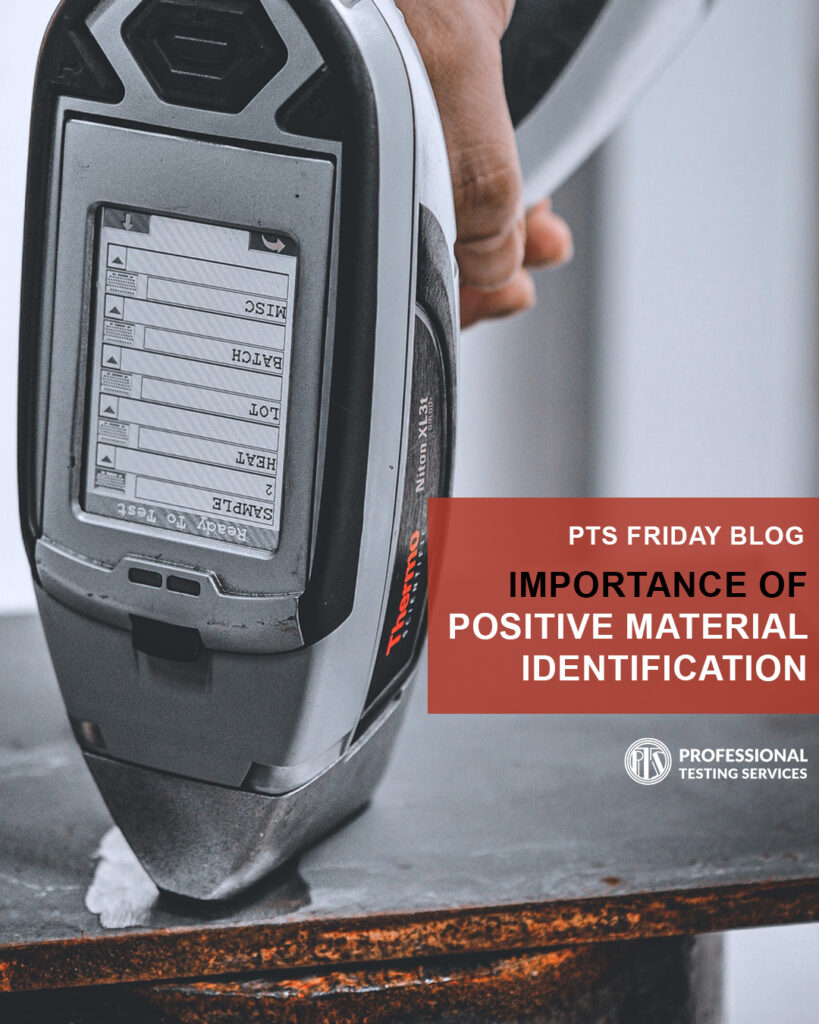
What is Positive Material Identification?

Positive Material Identification is a non-destructive test method used for determining alloys present in a material and identifying material composition. PMI allows a user to verify that the alloy used is as specified and check if the grade is as expected. This is important to ensure resistance to heat and corrosion, weldability, and durability to ensure safe practices.
PMI analysers come in various shapes and sizes, from mobile to handheld, and allow operators to verify the safety of their equipment or the exact composition of the materials they use with complete confidence.
Generally, this is done using one or more testing methods: Handheld XRF, Handheld LIBS, or Portable OES. These test methods determine the chemical composition of the metal and match the chemistry to an alloy grade library to provide an alloy grade ID as a result.
Why is PMI so necessary?

The most frequent cause of industrial accidents is failures in mechanical integrity. Examples include, stress corrosion cracking, flow accelerated corrosion, especially in power plant technology and insufficient welded joint strength.
PMI testing means that companies can ensure that every single part in their system meets specifications, critical replacement parts are the right alloy grade and all bought-in materials are exactly what they should be. This vital step can be the critical difference between seamless operations and catastrophic safety failures.
In the most recent SpaceX dilemma, Elon Musk’s rocket company decided to cut ties with PMI Industries. Because of falsified metal tests submitted by a quality assurance engineer, faulty parts were shipped to SpaceX to build their Falcon 9 and other Falcon Heavy rockets. Fortunately, SpaceX had multiple points in the supply chain where PMI testing occurred. They could identify 76 individual parts which were rejected before making it to the final mission.
Not only did PMI Industries go out of business, but the quality assurance engineer who falsified 38 inspection reports pleaded guilty and faced up to 15 years in prison and a $500,000 fine. Fortunately for everyone involved, the distortion has not proven fatal yet.
Contact us for your PMI testing

PMI can be utilized on various part sizes – from large complex parts to things as small as the weld fill material or small fasteners. It is a non-destructive process that provides rapid, reliable service with accurate results.
In PTS, our testing team can perform off-site and on-site material testing to determine the composition and grade of the metal alloy. With PMI testing, our team in PTS ensure that every single part in your sample meets the right specifications.









